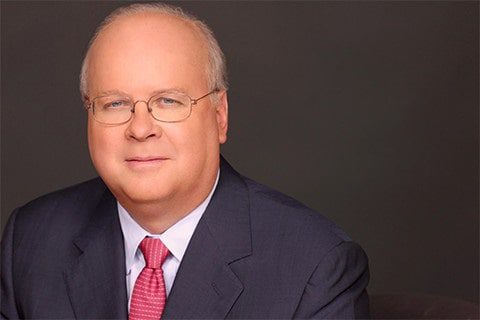
OPINION
By Karl Rove
It’s hard enough being the party out of power in normal times. It’s more difficult when the ruling party dominates the daily narrative by notching big wins at home and abroad. A recent CNN poll put the Democrats’ favorable rating at a record low—29 percent. They have only themselves to blame.
After all, it was Democratic voters who nominated far-left extremist Zohran Mamdani as their candidate for New York mayor. He’s running on a platform of free everything and won’t disavow the slogan “globalize the intifada.” He has said that “seizing the means of production” is something “we firmly believe in” and that “I don’t think we should have billionaires.” If Mr. Mamdani wins, Republicans will use him to trash all Democrats in the 2026 midterms.
That’s not Democrats’ only problem. Grassroots activists are urging congressional Democrats at town halls to “fight dirtier” and “get in the mud.” Anger isn’t a strategy. It’s a tone that could turn off up-for-grabs voters. Anyone who hates President Trump is already energized. What he says and does will keep those partisans riled up. But others who are open to voting for Democrats in 2026 need much more, including a reasonable agenda that isn’t on the fringe.
That enthusiasm in the party exists mainly on the left is a problem for Democrats hoping to convert swing voters. The national Fighting Oligarchy Tour of Sen. Bernie Sanders (I., Vt.) and Rep. Alexandria Ocasio-Cortez (D., N.Y.) brought out progressive true believers this spring, but made the Democratic Party appear even more distant from the mainstream.
There are other divisions between the hard left and normal Democrats. Former Democratic National Committee Vice Chairman David Hogg keeps organizing primary challenges by leftists to older moderate or traditional Democrats. Support for Israel has become a dividing line in Democratic primaries. Resources and energy spent in these intraparty fights won’t be available for the general election, thereby diminishing the party’s unity and appeal.
Democrats are missing the boat on issues, too. Los Angeles Mayor Karen Bass, who is up for re-election next June, can improve her chances in a liberal city by condemning the Border Patrol’s removal of violent criminal aliens and demanding that Immigration and Customs Enforcement agents “leave . . . right now.” But that paints Democrats generally as soft on border security and crime.
Democrats would be smarter to support returning violent criminal illegal aliens to their home countries, albeit with due process. They can do this while opposing the deportation of people who came here illegally many years ago but have clean records, work hard, pay taxes and contribute to America’s prosperity. Polls suggest that’s a big winner.
Transgender issues are another Democratic problem. It’d be wise to accept a ban on men in women’s sports while defending parental rights. It’s dumb to attack the Supreme Court for letting religious parents opt their kids out of public school classes advocating gay rights and sexual boundary-pushing.
Democrats seem unable to grab an opportunity to attract independent voters and even make modest inroads with soft Republicans. Where is the Democrats’ sustained messaging criticizing Mr. Trump’s pardons of people convicted of attacking police on Jan. 6, 2021? A Washington Post/Ipsos survey found 83 percent opposed his clemency for violent criminal offenders who assaulted the Capitol.
On the other hand, some Democrats are smartly criticizing the Justice Department’s handling of the Jeffrey Epstein investigation. The DNC posts daily reminders that the Trump administration hasn’t released the Epstein files. Congressional Democrats are demanding immediate hearings and legislation to compel Justice to make everything public. All this stirs up divisions in MAGA-land that redound to the benefit of Democrats.
Op-Ed by Mr. Rove, courtesy of rove.com, was first published in The Wall Street Journal.

Karl Rove served as Senior Advisor to President George W. Bush from 2000–2007 and Deputy Chief of Staff from 2004–2007. At the White House he oversaw the Offices of Strategic Initiatives, Political Affairs, Public Liaison, and Intergovernmental Affairs and was Deputy Chief of Staff for Policy, coordinating the White House policy-making process.
Mr. Rove has been described by respected author and columnist Michael Barone in U.S. News & World Report as “…unique…no Presidential appointee has ever had such a strong influence on politics and policy, and none is likely to do so again anytime soon.” Washington Post columnist David Broder has called Mr. Rove a master political strategist whose “game has always been long term…and he plays it with an intensity and attention to detail that few can match.” Fred Barnes, executive editor of The Weekly Standard, has called Mr. Rove “the greatest political mind of his generation and probably of any generation. He knows history, understands the moods of the public, and is a visionary on matters of public policy.”
Before Mr. Rove became known as “The Architect” of President Bush’s 2000 and 2004 campaigns, he was president of Karl Rove + Company, an Austin-based public affairs firm that worked for Republican candidates, non-partisan causes, and non-profit groups. His clients included over 75 Republican U.S. Senate, Congressional, and gubernatorial candidates in 24 states, as well as the Moderate Party of Sweden.

